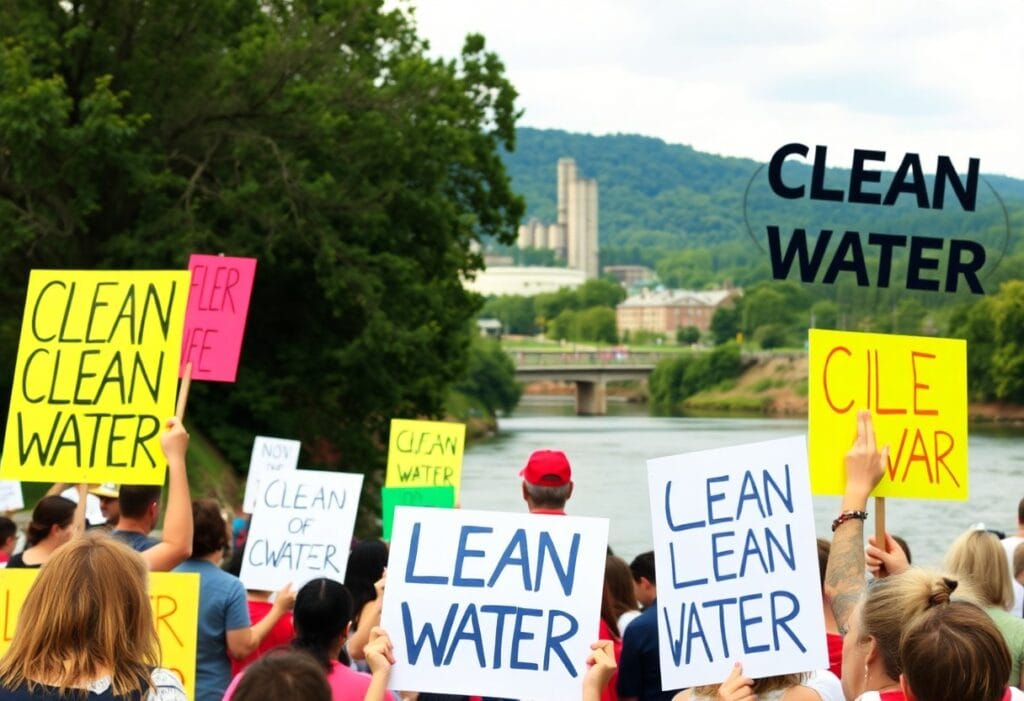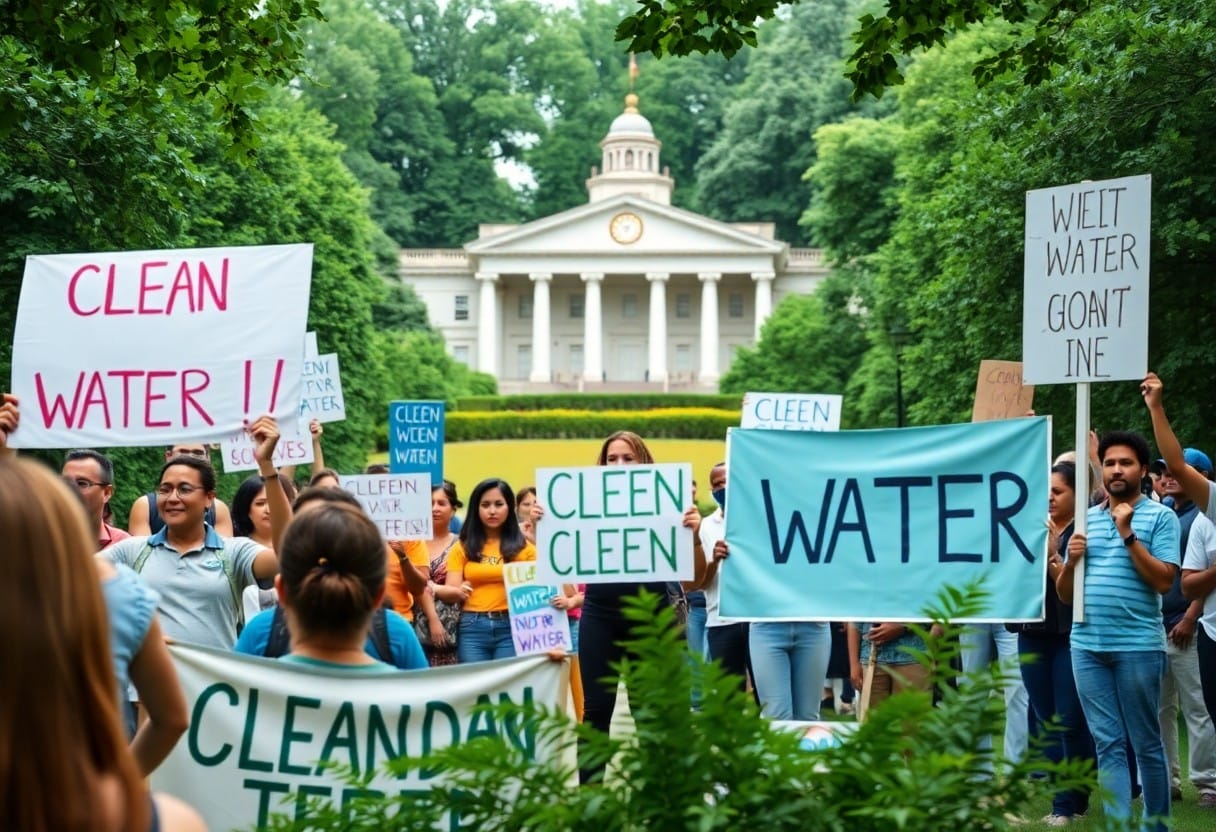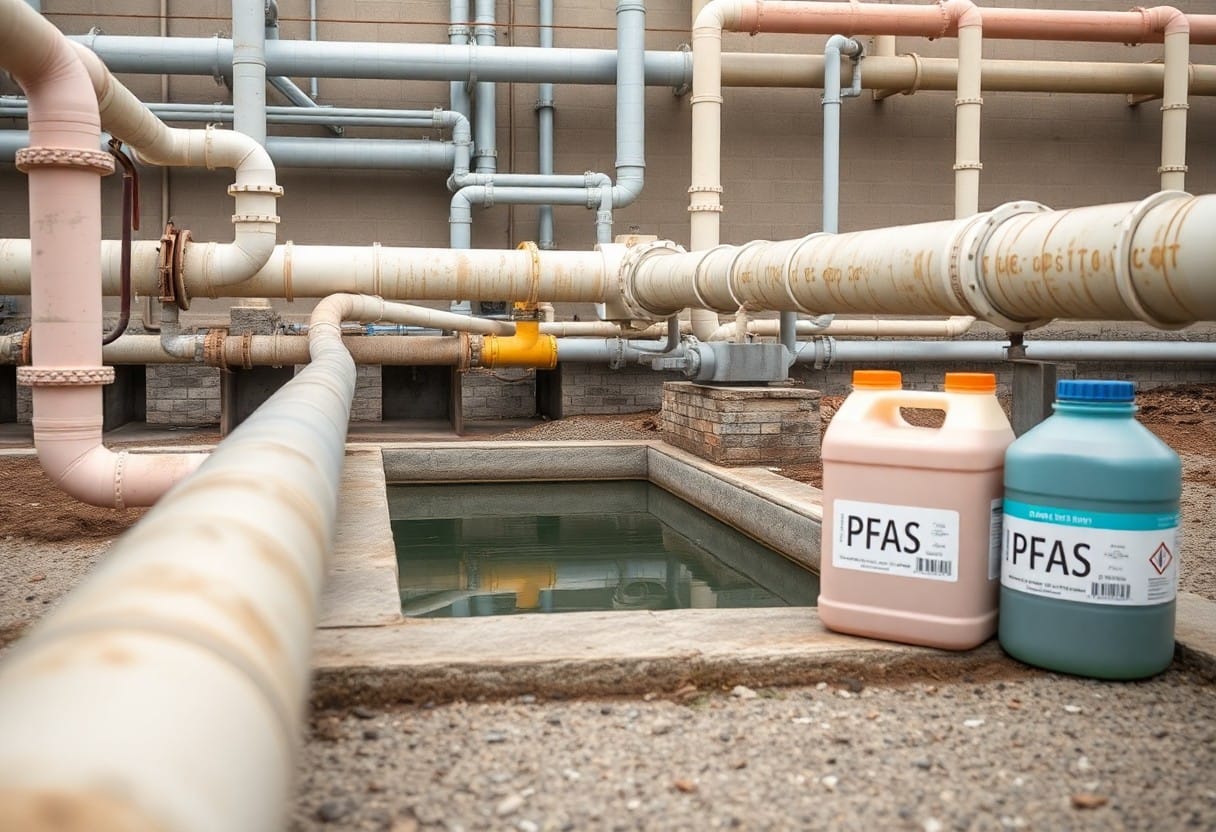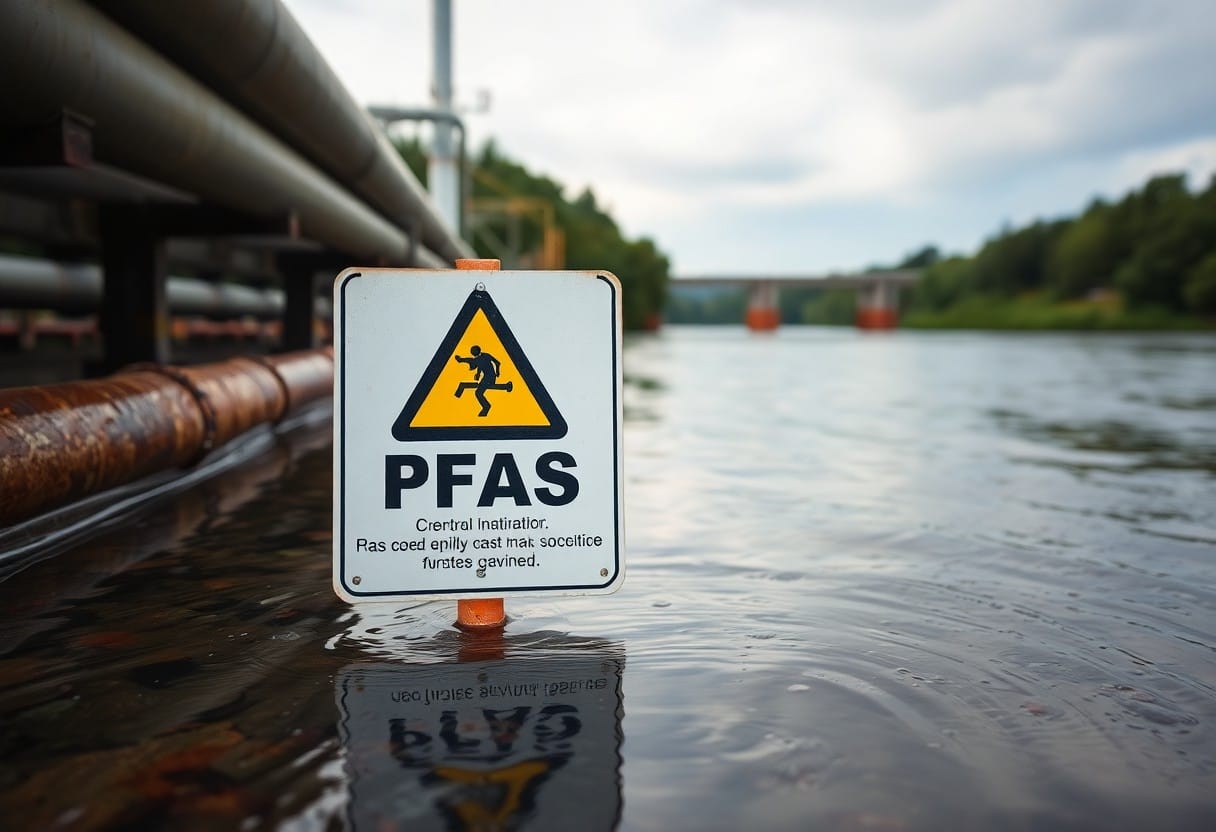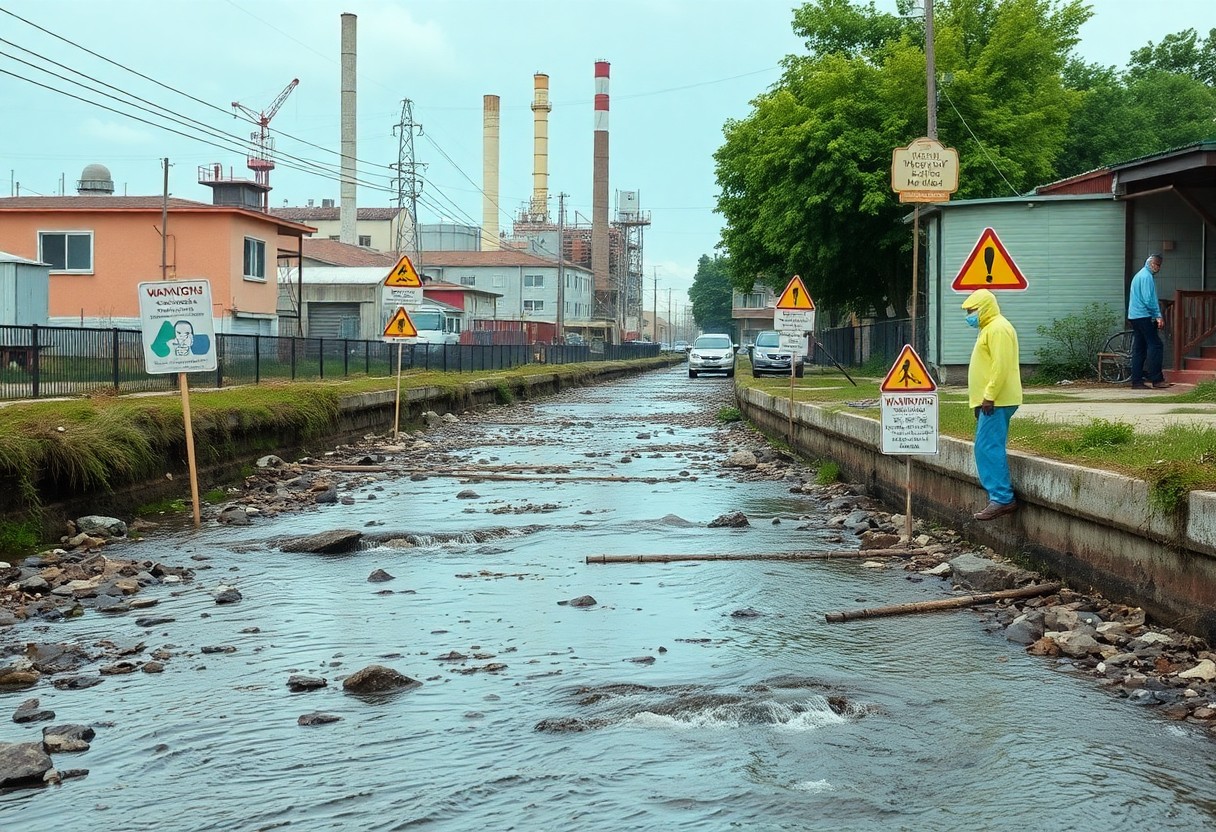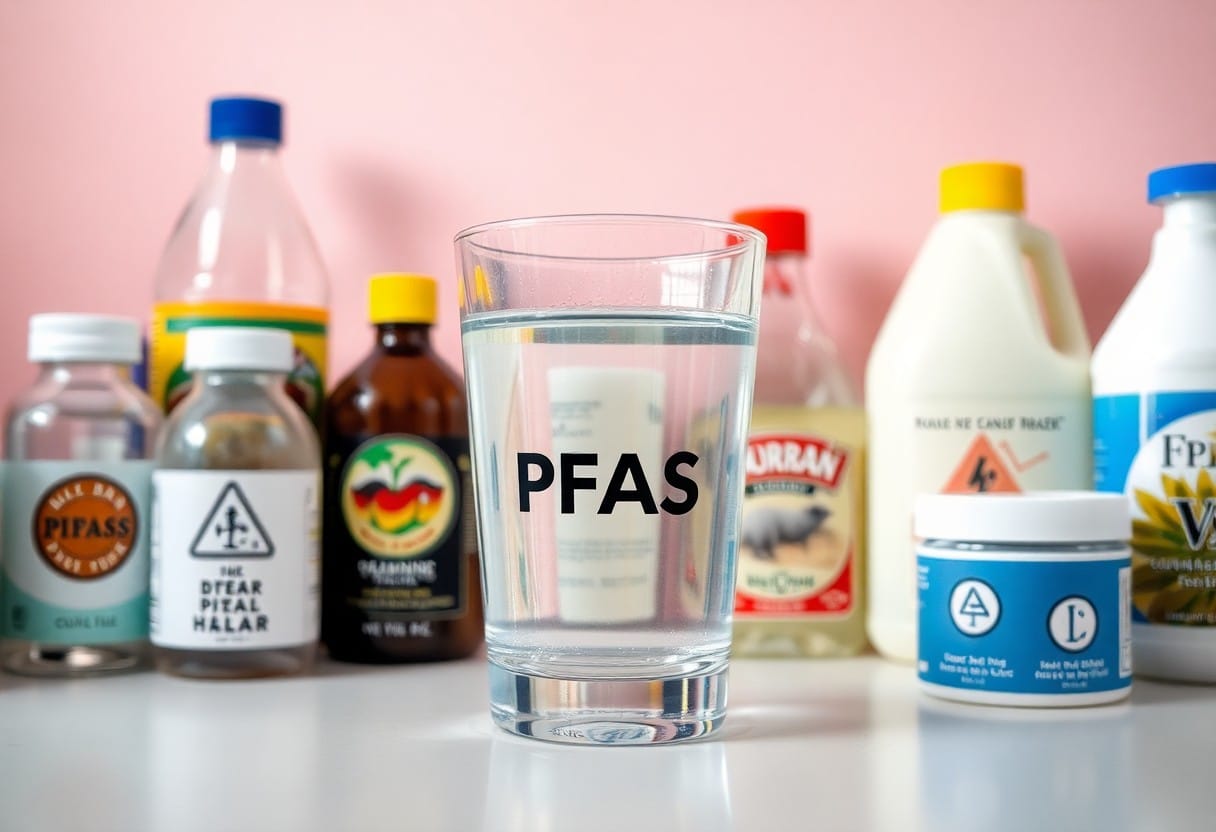Chemours has become a focal point in Fayetteville’s ongoing battle for clean water, raising serious concerns about potential contaminants. As a resident or stakeholder in this community, you deserve to know the implications of Chemours’ operations on your water supply. This blog post will unravel the complexity of the situation, exploring both the dangers posed by chemical runoff and the efforts being made to ensure accountability and transparency. Stay informed as we probe into whether this multinational corporation can truly be trusted with your health and environment.
Background on Chemours
As a company that spun off from DuPont in 2015, Chemours specializes in chemicals and materials that serve various industries, including fluoroproducts, Titanium Technologies, and Chemical Solutions. With a mission to deliver sustainable solutions, you may find their extensive product portfolio encompasses everything from refrigerants to advanced materials for everyday products. However, their reputation has been challenged due to ongoing environmental concerns and contamination issues linked to their manufacturing practices.
Company Overview
For a better understanding, it’s important to know that Chemours operates globally, generating significant revenue and employment. Their commitment to innovation and sustainability, however, often comes under scrutiny, especially in communities affected by their facilities. As you investigate deeper into Chemours’ impact, you’ll discern the balance between industrial success and environmental responsibility.
History of Contamination Issues
Around the world, Chemours has faced various contamination allegations, heightening concerns about its environmental practices. Awareness of these issues is pivotal, as they have resulted in legal actions, public protests, and extensive investigations, raising questions about the company’s transparency and responsibility to the communities it serves.
Background on Chemours reveals significant environmental contamination associated with their production of perfluorinated compounds (PFCs), which have been linked to water pollution and health risks in several regions. Specific incidents, such as the release of toxic substances into water systems near the Fayetteville facility, have drawn public outcry. These events have not only jeopardized local water supplies but have also led to intense scrutiny of the company’s operational practices. With ongoing legal battles and community unrest, you are urged to consider how Chemours addresses these serious environmental challenges, as their past actions impact both public health and trust in their future commitments to safety and sustainability.
The Water Crisis in Fayetteville
Any discussion about Fayetteville’s water crisis highlights the disturbing levels of contamination detected in the water supply. The ongoing challenges are primarily linked to industrial pollution, particularly from Chemours, a company involved in producing chemicals known for their hazardous effects. You can learn more about the efforts to address this situation through the Chemours Consent Order | NC DEQ.
Sources of Contamination
After years of industrial activity, Fayetteville is left grappling with the implications of hazardous substances released into local waterways. The primary sources of this contamination stem from the discharge of per- and polyfluoroalkyl substances (PFAS), particularly from Chemours facilities. It’s patently evident that these chemicals have seeped into the groundwater, affecting both public health and natural ecosystems.
Impact on Community Health
After ongoing exposure to contaminated water, community health in Fayetteville has become a pressing concern. Residents continue to express worries about the potential health risks associated with long-term consumption of tainted water, prompting increased demand for more stringent regulatory actions.
Consequently, health reports indicate an alarming rise in instances of various illnesses, which community members feel may be linked to waterborne contaminants. Many residents have voiced concerns over potential issues such as cancer, immune disorders, and other debilitating health conditions that can arise from exposure to PFAS. The emotional and physical toll on your community is notable, as residents strive to protect their families and secure a healthier future.
Regulatory Responses
It is imperative to understand how regulatory bodies are addressing the ongoing concerns regarding water contamination in Fayetteville. Agencies are stepping up inspections and establishing stricter guidelines to limit the discharge of harmful substances into local waterways, ultimately aiming to protect your health and the environment.
Government Investigations
Among the various actions taken, numerous government investigations have been launched to scrutinize Chemours’ operations. These investigations focus on the extent of pollution and compliance with environmental regulations, ensuring that your community receives the necessary oversight to safeguard against further contamination.
Legal Actions Against Chemours
Government entities have initiated several legal actions against Chemours in response to the harmful effects of their chemical discharges. These lawsuits seek accountability for the pollution, along with remediation efforts to restore contaminated sites and provide compensation to affected residents.
And while some of the legal challenges have resulted in fines and consent agreements, ongoing litigation poses an uncertain future for Chemours. As your community grapples with the lasting impacts of contamination, these legal outcomes will be instrumental in determining whether Chemours can truly be held responsible for health risks and environmental damage. Your continued awareness and engagement in these matters may influence the resolution of these legal actions and ultimately, the health of your local water supply.
Public Opinion and Activism
Keep in mind that the fight for clean water in Fayetteville has united the community, sparking significant discussions around the trustworthiness of Chemours. Local residents have voiced their concerns through various platforms, emphasizing the need for strict regulations and transparency. The growing mistrust in Chemours has fueled a movement advocating for safer water practices, and as community awareness continues to rise, your role as an informed citizen is more important than ever.
Community Efforts for Change
Community members have come together to form grassroots organizations, rallying for action against water contaminants. These local efforts are not only raising awareness but also pressuring lawmakers to implement stronger environmental protections. By participating in these initiatives, you can contribute to a collective voice pushing for real change that prioritizes the health and safety of your community.
Perspectives from Local Leaders
Activism in Fayetteville is significantly shaped by the insights of local leaders who advocate for safe environmental practices. This community dialogue emphasizes the importance of addressing toxic contaminants and holding corporations accountable. Local leaders stress that your involvement can lead to effective policy changes by pushing for legal action against entities like Chemours and promoting sustainable practices that protect your water supply. Their commitment highlights not only the dangers associated with chemical pollution but also the potential for positive change when a unified community stands together.
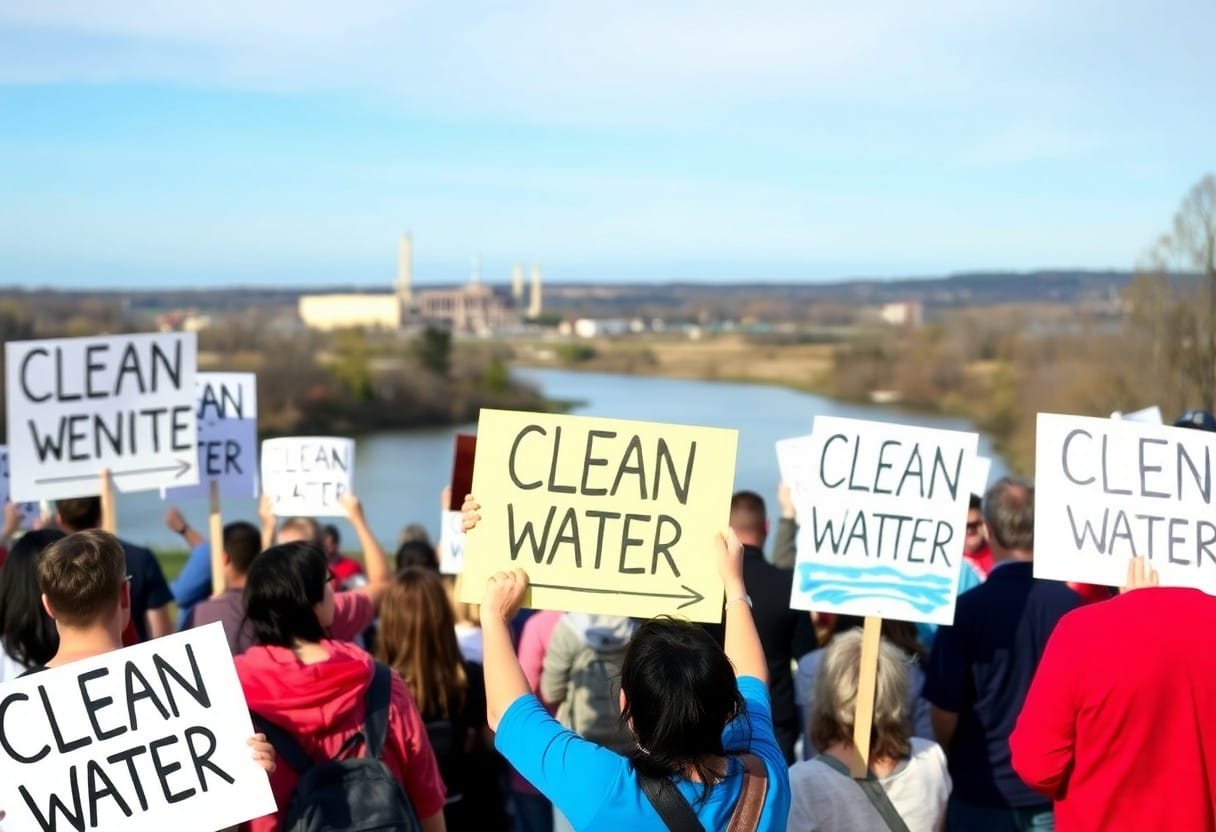
Chemours’ Actions and Promises
After numerous environmental concerns were raised, Chemours promised to enhance its commitment to clean water initiatives. They claimed to invest in advanced filtration technology and other remedial strategies to mitigate the impact of their operations on Fayetteville’s water supply. However, many community members remain skeptical about their reliability and long-term effectiveness.
Cleanup Efforts
For those affected by contamination, Chemours has initiated various cleanup efforts aimed at restoring local water resources. This includes an ongoing commitment to remove harmful substances from affected areas and ensure compliance with state and federal regulations, although challenges persist.
Corporate Accountability Measures
Cleanup efforts have sparked a debate about transparency and responsibility within corporate practices. To address this, Chemours has implemented new accountability measures designed to hold them responsible for environmental damage. However, concerns about the effectiveness of these measures linger among local advocates.
But despite these measures, many in the community question whether Chemours will truly take responsibility for their environmental impact. Some statistics reveal troubling levels of contamination still present in nearby water sources, and many residents feel left in the dark about ongoing contamination levels. The effectiveness of Chemours’ cleaning efforts is under scrutiny, and while they have made commitments to regular reporting, there remains a demand for independent oversight to ensure that promises are upheld. It is necessary for you to stay informed and advocate for rigorous environmental standards in your community.
Assessment of Trustworthiness
Many residents of Fayetteville are grappling with the question of whether Chemours can be trusted to deliver on its promises regarding clean water. As concerns about toxic waste and environmental impact mount, you may be left pondering the company’s commitment to safety and transparency.
Analysis of Chemours’ Track Record
Against the backdrop of past contamination issues and legal challenges, Chemours’ history raises significant questions about their reliability. You may find it troubling that previous incidents related to chemical leaks have exposed communities to harmful pollutants, making it understandable why skepticism exists.
Community Trust vs. Corporate Assurance
An environment of mistrust is prevalent among residents who feel that corporate assurances often clash with their lived experiences. You might sense a growing divide between the promises made by Chemours and the concerns voiced by your community, making it hard to see a path forward.
But amidst the distrust, it’s important to weigh the concerns within the community against Chemours’ stated commitments to improve safety measures and environmental practices. Initiatives aimed at remedying previous harm may offer some hope, but your perception of these corporate efforts is likely influenced by the unsettling legacy of past contamination. The challenge lies in balancing the need for corporate accountability with the desire for genuine community engagement. As a resident, you have every right to demand transparency and assurances that prioritize your health and safety.
Final Words
The ongoing struggle in Fayetteville for clean water highlights significant concerns about the trustworthiness of Chemours in managing pollution issues. As a resident or stakeholder, you have a right to demand transparency and accountability from the company. Your health and the environment are at stake, making it imperative for you to stay informed about the impacts of PFAS and other chemicals. For more insights on how chemical companies navigate their responsibilities, consider reading about How Chemical Companies Avoid Paying for Pollution.


